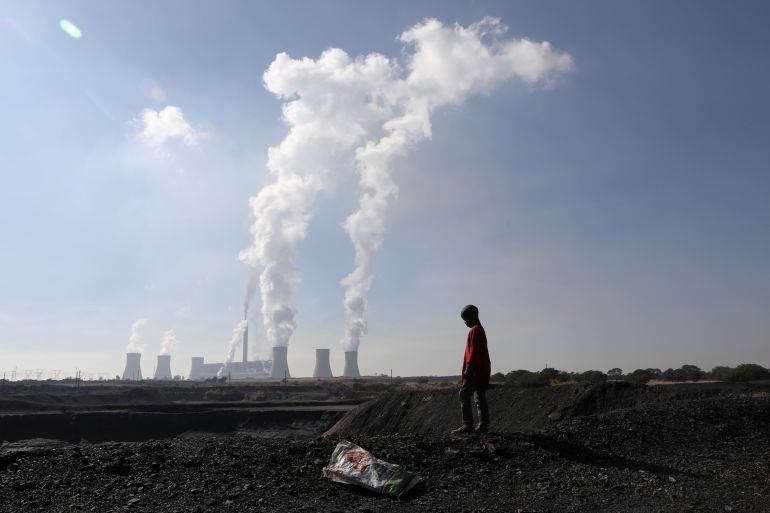South African unions accept Eskom wage offer amid power cuts
Eskom relies on an ageing coal fleet and South Africa has faced intermittent power cuts for more than a decade.

South Africa’s state-owned utility Eskom and workers’ unions have signed a wage deal, paving way for a possible resolution to its worst power cuts in two years.
Struggling Eskom and its three recognised labour unions signed the agreement for a 7 percent salary increase a week after it started implementing prolonged power cuts, blaming them on striking workers hampering efforts to bring malfunctioning power units back online.
Keep reading
list of 4 itemsChina restaurant explosion caught on dashcam
‘No justification for Gaza carnage’: Nigeria Foreign Minister Yusuf Tuggar
How have Red Sea attacks by Yemen’s Houthi fighters affected companies?
The company said power supplies would still take time to recover and urged staff to return to work to begin the process.
“As a result of the strike, maintenance work has had to be postponed, and this backlog will take time to clear,” it said in a statement.
Eskom relies on an ageing coal fleet that is highly prone to faults. South Africa has faced intermittent power cuts for more than a decade, which have hindered economic growth.
The so-called “Stage 6” outages imposed by Eskom since last week have meant at least six hours without power every day for most South Africans. The last time they were as bad was in December 2019.
Already burdened with unsustainable debt levels and tariffs that are not yet cost-reflective, Eskom said the wage increase “will be a struggle for Eskom to afford”.
Razia Khan, chief Africa and Middle East economist at Standard Chartered, said although the wage deal was positive, “big picture, questions of affordability persist. This doesn’t really make Eskom’s more significant challenges go away.”
Small businesses have borne the brunt of the latest outages, while still reeling from the impact of the COVID-19 pandemic and inflation, which is at a five-year peak.
“These disputes always get resolved in the end,” energy analyst Chris Yelland told broadcaster eNCA. “The question is how much damage is done in the course of reaching this end.”